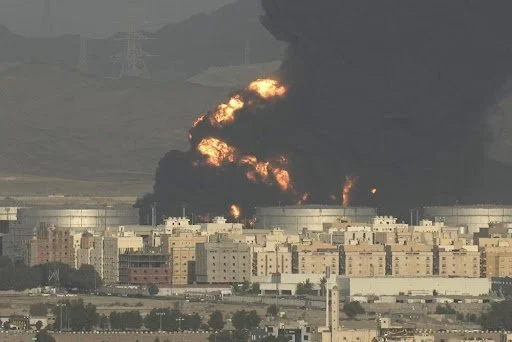US Supplies Saudi Arabia with Patriot Missiles Against Yemen Rebels
A photo of a Patriot Missile Launcher in Fort Bliss, Texas. Photo: Daniel Brown / Business Insider
Saudi demands for American weaponry were fulfilled this past month by the arrival of Patriot Missile shipments to Riyadh, U.S. officials reported. Intended to intercept the recent barrage of Houthi rebel attacks on Saudi energy facilities, the shipment provides a sense of relief to the Arab state in the wake of tense U.S.-Saudi relations.
The sudden transfer of the missiles is a likely byproduct of the unfolding global landscape. Russia’s invasion of Ukraine has put the United States and Europe in a precarious spot of needing to supply their oil from elsewhere and halt escalating gas prices. To this extent, European and American officials have sought to encourage Saudi Arabia and the UAE to boost oil production and thereby lower high energy costs.
The Saudis and Emiratis, however, have firmly rebuffed these attempts. Both nations have instead insisted on following the original production goals set forth by the petroleum exporting organization OPEC+, of which Russia is a member. The 400,000-barrel-a-day expectations set by this standard would not be enough to lower prices in the increasingly uncertain geopolitical atmosphere.
Saudi Arabia, for its part, has denied fault for high oil prices and laid the blame on Houthi rebel attacks against its oil facilities. These attacks, according to the Saudi Foreign Ministry, will complicate “the kingdom’s production capability” and affect the state’s ability to export petroleum.
An oil depot burns on March 26, 2022, in Jeddah, Saudi Arabia. Houthi Rebels, a group of Shia insurgents in Yemen which oppose Saudi Arabia, quickly took credit for the attack. Photo: Hassan Ammar / AP Photo
The US therefore rationalizes its Patriot Missile shipments as an attempt to prevent further Houthi damage to Saudi institutions. The move, however, is a significant shift in Biden’s foreign policy, which sought to distance American involvement in the Yemen conflict. In September 2021, the United States removed its missile defense system to the chagrin of the monarchy, even as Houthi attacks were being reported against military bases.
Relations between Muhammad Bin Salman and President Biden were also relatively frosty from the US’ investigation into journalist Jamal Khashoggi’s murder and the restart of Iranian negotiations. Despite the lack of any harsh statements from Washington, underlying tensions caused Saudi and Emirati government figures to decline calls with Biden regarding the boosting oil production.
Hesitance from Gulf States to consider raising oil production has forced the United States to reconsider its past relationship with nations such as Venezuela. Domestically, a bipartisan call for expanding internal energy production has faced roadblocks over the volatility and logistical constraints of commencing new domestic drilling operations.
Nevertheless, Saudi Arabia’s state-owned oil company is willing to turn towards higher production, and Arab nations have hinted their position could change based on more America support. The Houthis have also instituted a temporary 3-day ceasefire against striking Saudi Arabia after an aggressive counterattack was launched against rebel bases.
The question of whether the Saudis and other Gulf States agree to new negotiations with the Yemeni rebels remains unresolved. Although no Middle Eastern State has given a straightforward line of assurance for raising oil production, the United States appears ready to accommodate in order to remediate the coming price spikes.


